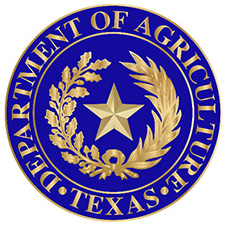(AgInsider) Congress will have to temporarily extend the lifespan of the 2018 farm bill because it will miss the Sept. 30 deadline for enacting its successor, said House Agriculture chairman Glenn Thompson. It was the first direct acknowledgement by one of the “four corners” of farm policy — the leaders of the House and Senate Agriculture committees — that the 2023 farm bill would be late.
Neither committee has presented a first-round version of the panoramic legislation, which can take months, or even years, to complete. The 2023 farm bill is expected to be the most expensive ever, with chapters on commodity subsidies, SNAP, ag research, rural development, crop insurance, food aid, export promotion, farm credit, forestry, and land stewardship. Conservative Republicans are expected to propose limits on access to SNAP.
“The Chairwoman (Debbie Stabenow) is continuing to work toward a bipartisan bill that can be signed into law by the end of the year,” said a Senate Agriculture Committee spokesman on Monday when asked about prospects for the 2023 farm bill. Several farm-state lawmakers have used similar language, framing the goal as presidential enactment this year, rather than by Sept. 30, when provisions of the 2018 law begin to expire. Dairy would be the first commodity to be affected, in Jan. 1.
“I think there’s going to have to be an extension only because there’s a lot of moving parts,” said Thompson at Penn State’s Ag Progress Days last week, according to reports by public broadcaster WPSU and by American Agriculturalist. Thompson said he would unveil his version of the bill and seek a committee vote when GOP House leaders reserved a week for floor debate of the legislation. “The whole sequence is driven when leadership gives me a week, and maybe that will be in September. Maybe it won’t. I don’t know.”
WPSU quoted Thompson as saying the extension “hopefully would be just short term.” On Monday, at the Missouri State Fair, he said a short extension would be needed, reported Brownfield Ag News.
“Nothing is absolute. Floor time, Senate action, and the politics of the day are all considerations of whether an extension will ultimately be necessary,” said a Thompson aide.
Lawmakers are expected to give priority in September to voting on the annual government funding bills. None has been enacted for the new fiscal year, which opens on Oct. 1. The farm bill would take secondary importance in that case.
More often than not, Congress is late in passing farm bills. For example, the 1996 “freedom to farm” law originally was expected in 1995 and the 2012 farm bill, after repeated setbacks, became the 2014 farm law. President Trump signed the 2018 farm bill on Dec. 20, nearly three months after the statutory target of Sept. 30.











